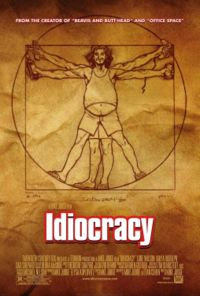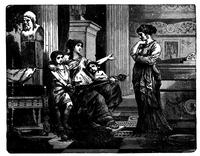covariance - noun - The expectation or mean value of the variable formed by multiplying the differences obtained by subtracting two given variates from their respective means; the product of the standard deviations of two given variates and the coefficient of correlation between them; a statistical measure of the variance of two random variables that are observed or measured in the same period.
Sheesh! I thought I knew what that meant!
(interesting reading here http://en.wikipedia.org/wiki/Covariance_and_contravariance_%28computer_science%29)
Wednesday, February 28, 2007
pulp

pulp - n - A magazine or book printed on rough, low-quality paper made of wood pulp or rags, and usually containing sensational and lurid stories, articles, etc.
Before there was television there were pulp magazines. A newstand of the 1930s was a wondrous sight: brightly-colored, action packed, sometimes sexy covers on magazines featuring an incredible variety of stories - mystery, detective, weird, science fiction, war, air war, sports, romance, humor, jungle adventures, Oriental adventures, spicy, and a number of series characters, including the Shadow, Doc Savage, the Spider, G8 and His Battle Aces, and many others. (Caveat: The covers could be sexy, but they promised a lot more than the fiction inside delivered.)
The typical pulp magazine paid a cent a word, and with hundreds of pulps at any given time there was a constant demand for fiction. It was a great time for a young writer to be alive. Alfred Bester said that the pulps gave the novice a place to learn his craft while getting the bad writing out of his system. Few such markets exist today.
The cent a word rate was pretty standard, but some of the pulpier pulps paid, as the old joke had it, "a quarter cent a word, payable on lawsuit." Still, at a cent a word, a 20,000 word story (about 35 printed pages or so) paid 200.00. 200 bucks went a long way in the great days of the pulps (maybe from about 1920 to 1955). L Ron Hubbard and Arthur Burkes routinely cranked out 10,000 words a day.
Naturally a lot of pulp fiction makes for painful reading today, but then much modern TV makes for painful viewing. Audiences then were no more sophisticated than audiences today. And some high-powered authors got their start in the pulps: Raymond Chandler, Tennessee Williams, Dashiel Hammett, Philip Wylie, Robert A Heinlein, Isaac Asimov, Erle Stanley Gardner, and many others.
So much for the pulps.
Today's picture, "Exquisite" number three, is The Pink Rose by Charles Amable Lenoir. I hate to indulge in art-babble, but since Nat's not paying attention I will point out the obvious (to me) symbolism: innocence, virginity, pristine possibility. The pink rose. Beautiful.
Tuesday, February 27, 2007
ambit
ambit - noun - circuit or compass; the boundaries or limits of a district or place; an area in which something acts, operates or has power or control; extent; sphere; scope
Last night I was teaching SafeKids about their "circle of safety". That is the area around you over which you exert personal control. If you allow someone close enough to reach into that space, you risk capture by bad-guys. Sure wish I could have used this word, but a bunch of 5-11 year old kids just wouldn't have understood it and it would have taken as long to explain it as it did to just describe the concept.
Last night I was teaching SafeKids about their "circle of safety". That is the area around you over which you exert personal control. If you allow someone close enough to reach into that space, you risk capture by bad-guys. Sure wish I could have used this word, but a bunch of 5-11 year old kids just wouldn't have understood it and it would have taken as long to explain it as it did to just describe the concept.
Monday, February 26, 2007
doyen
doyen - noun - the senior member of a body or group; one who is knowledgeable or uniquely skilled as a result of long experience in some field of endeavor
The resident example, is, of course, Jack.
The resident example, is, of course, Jack.
Friday, February 23, 2007
perdition
perdition - noun - a state of final spiritual run; loss of the soul; damnation; the future state of the wicked; utter destruction and ruin.
I am (once again) reading an old favorite of mine, although I can't recall having mentioned the title. I'll give you a hint, the famous first sentence is, "Call me Ishmael". If you need an example of a cynical person, please read the first couple of chapters of this book! Anyway, today's word is embedded in a quote I found irresistable to post. It is on the difference of paying or being paid.
The act of paying is perhaps the most uncomfortable infliction that the two orchard thieves entailed upon us. But being paid, - what will compare with it? The urbane activity with which a man receives money is really marvellous, considering that we so earnestly believe money to be the root of all earthly ills, an that on no account can a monied man enter heaven. Ah! how cheerfully we consign ourselves to perdition!
(Note the older spelling (now considered incorrect) of the word marvelous). I'd be interested in reading comments by Jack regarding the religious views held by our hero in this statement. Note the often misquoted or misunderstood assertion that money is the root of all earthly ills which the Bible specifically states the LOVE of money...
For those who may not have figured out the book in this case, the author is Herman Melville, the title is (wait for it... ) "Moby Dick". My particular tome is ancient by all appearances, it has a hard green cover, torn at the edges, yellow, brittle paper and no copyright or publishing date contained therin and published by Grosset & Dunlap of New York. Being a former library book (discarded in lieu of newer printings in better condition no doubt) , the oldest stamp is March 22 1965. Yet, oddly, it's the only copy I have (I have, for example, a couple of books containing the Three Musketeers). This is truly a wonderful read, not only for the story, but also for it's language. A real joy and should be listed in the top 10 of pretty much everyones reading list.
I am (once again) reading an old favorite of mine, although I can't recall having mentioned the title. I'll give you a hint, the famous first sentence is, "Call me Ishmael". If you need an example of a cynical person, please read the first couple of chapters of this book! Anyway, today's word is embedded in a quote I found irresistable to post. It is on the difference of paying or being paid.
The act of paying is perhaps the most uncomfortable infliction that the two orchard thieves entailed upon us. But being paid, - what will compare with it? The urbane activity with which a man receives money is really marvellous, considering that we so earnestly believe money to be the root of all earthly ills, an that on no account can a monied man enter heaven. Ah! how cheerfully we consign ourselves to perdition!
(Note the older spelling (now considered incorrect) of the word marvelous). I'd be interested in reading comments by Jack regarding the religious views held by our hero in this statement. Note the often misquoted or misunderstood assertion that money is the root of all earthly ills which the Bible specifically states the LOVE of money...
For those who may not have figured out the book in this case, the author is Herman Melville, the title is (wait for it... ) "Moby Dick". My particular tome is ancient by all appearances, it has a hard green cover, torn at the edges, yellow, brittle paper and no copyright or publishing date contained therin and published by Grosset & Dunlap of New York. Being a former library book (discarded in lieu of newer printings in better condition no doubt) , the oldest stamp is March 22 1965. Yet, oddly, it's the only copy I have (I have, for example, a couple of books containing the Three Musketeers). This is truly a wonderful read, not only for the story, but also for it's language. A real joy and should be listed in the top 10 of pretty much everyones reading list.
Thursday, February 22, 2007
poignant
poignant - adj - Keenly distressing to the feelings; keen or strong in mental appeal; affecting or moving the emotions; pungent to the smell.
Anger is the feeling that makes your mouth work faster than your mind. - Evan Esar (American Humorist 1899-1995)
Guilty.
Anger is the feeling that makes your mouth work faster than your mind. - Evan Esar (American Humorist 1899-1995)
Guilty.
erastian

Erastian - n - One of the followers of Thomas Erastus, a German physician and theologian of the 16th century. He held that the punishment of all offenses should be referred to the civil power, and that holy communion was open to all. In the present day, an Erastian is one who would see the church placed entirely under the control of the State.
Sounds reasonable, right? Check out the battles over homosexual adoptions recently conducted by Catholic Charities in San Francisco (needless to say, they folded like a cheap suit) and the Catholic and Anglican churches in England. It seems these institutions, all of which handle adoptions, think that sending children home with "parents" who are in violation of Christian doctrine would be a sin. There are, however, laws against homophobia in Tony Bennet's beautiful city by the bay and Tony Blair's Cool Brittania.
On a personal note, I have had it. I realize that Good Old John - that clownish figure at the end of the aisle - is easy pickings for anybody who's having a rough day, but I've finally reached my limit. It's bad enough that my beloved civilization and the country whose history has fascinated me since I was five are dying, but I can no longer stand the Death of a Thousand Cuts that is my life at Hertz. Like Dostoevsky's famous servant, I am tempted to stand up and shout, "I too am a human being!" Realistically, though, I'm not - not really. I'm just a unit in a number that's reported to the EEOC on a regular basis. Do I serve any real purpose here? Would it make any difference if I spent my days reading scripture? Answers: No and Yes (reading scripture might bring me peace.)
Do I whine? No, I'm not whining. I'm absolutely furious. I have nothing left to give, not that anybody would want it in the first place.
Sorry about the vent, but I have to do it and I'm going to let it stand. The alternative is for me to hand in my notice and take my chances, but, having a wife and children as I do, that's not an option.
Look on the bright side: It may be a rant, but I used no obscenities and never blasphemed. You may also put out of your minds any notion that I'm going to grab a gun and start shooting. At most I'll make a furious entry on my personal blog.
One more thing: This is not open to discussion.
Wednesday, February 21, 2007
Unitarianism

Unitarianism - n - Christian doctrine that stresses individual freedom of belief and rejects the Trinity.
Unitarianism did indeed start out as a Christian sect, but has since provided churches the main function of which seems to be feeding doughnuts to atheists and agnostics on Sunday morning.
Isaac Newton wrote far more on Christian exegesis than he did on science and mathematics. In fact, his entire exposition of the calculus appeared only as an appendix to his book on optics. Newton, however, did have a deep, dark secret: he was a closet Unitarian, in that he denied the doctrine of the trinity (he was essentially an Arian).
Father Richard McBrien, formerly head of the theology department at Notre Dame, has been rightly described as "as good a Unitarian as you'll ever meet." People who were shocked that Notre Dame hosted a performance of Eve Ensler's unutterably sick Vagina Monologs (sorry, Nat, but it's her title, not mine), should take a closer look at the theological underpinnings of America's premier Catholic university. I'm not too crazy about Catholic-bashing, but they sure have been begging for it.
Is it any wonder that churches which are trying to keep up with the times are losing membership, while churches that actually take all that Christian stuff seriously are thriving? All those good Unitarians, be they Catholic, Episcopalian, or Methodist, are losing the culture war, and a good thing too. Seven Virginia churches recently left the Episcopalian communion. With Katharine Jefferts Schori elected head of the U.S. church, one needn't wonder why.
trant
trant - verb - to walk slowly; to traffic in an itinerary manner; to peddle (as a noun - a scam)
This is the last of the words I collected from the Lost Beauties list.
This is the last of the words I collected from the Lost Beauties list.
off-kilter
off-kilter - adj. - not in perfect balance, a bit askew; eccentric, unconventional
Somehow this came up in a conversation at work the other day. And none of us could remember how to properly say the word:
"Off-kelter?"
"No, that doesn't sound right. Off-canter?"
"Now, I know that's not right."
"Off...?"
"What does it even mean?"
"It's when something is off or not right."
(then we somehow got on the discussion of the Earth's axis)
"I don't know. Hey, maybe I'll use it as one of my WoDs!"
Somehow this came up in a conversation at work the other day. And none of us could remember how to properly say the word:
"Off-kelter?"
"No, that doesn't sound right. Off-canter?"
"Now, I know that's not right."
"Off...?"
"What does it even mean?"
"It's when something is off or not right."
(then we somehow got on the discussion of the Earth's axis)
"I don't know. Hey, maybe I'll use it as one of my WoDs!"
Tuesday, February 20, 2007
reck
reck - verb - to have care, concern or regard; to take heed.
No, this isn't what happens between two cars when the drivers aren't paying enough attention to their driving. No this isn't the disorganized and chaotic condition of some people's lives. That word would be wreck (with a preceding 'w').
Note this word is nearly lost to history, but consider the suffix -less. When applied to this word, gives us a common enough word in our language. However, for fun, try this one out on someone and see how they react. They will probably think you meant wreck!
No, this isn't what happens between two cars when the drivers aren't paying enough attention to their driving. No this isn't the disorganized and chaotic condition of some people's lives. That word would be wreck (with a preceding 'w').
Note this word is nearly lost to history, but consider the suffix -less. When applied to this word, gives us a common enough word in our language. However, for fun, try this one out on someone and see how they react. They will probably think you meant wreck!
casus belli

casus belli – n - An event or political occurrence that brings about a declaration of war.
Prominent examples include the firing on Fort sumter (1861, American Civil War), the assassination of Archdule Framz Ferdinand and his wife Sophie (1914, World War I). and the German invasion of Poland (1939, World War II). Don't even get me started on the Hundred Years War. Edward III is probably still wearing a hairshirt in purgatory. (Speaking of purgatory, I'm almost certain that the soft drink machines are stocked only with Fresca, the cigarette machines contain only Carltons, and the dinner menu will be either liver and Brussel sprouts or squid with a side order of spaghetti and clam sauce. I'm not too worried though; by the time the rewrite is implemented, my stay there should be down to 6.000 years [give or take a century].)
And now, take the IQ challenge by answeing a test question from the movie IDIOCRACY:You have a bucket that holds two gallons. You have another bucket that holds five gallons. How many buckets do you have?
Keep that in mind as you read the following transcription of a conversation between a North Orange County high school match teacher and one of his students. I wish I were making it up, but I'm not.
Student: My mother is 28 [years old].
Teacher: How old are you?
Student: 15.
Teacher: So your mother had you when she was 13?
Student: Wow! How did you figure that out in your head so fast?
Teacher (embarassed): Uh, well, after all, I am a math teacher.
(California schools spend over 10,000 dollars per annum per student.)
I wonder how that kid would make out on the IDIOCRACY IQ test. (What am I saying? My betters have assured me that there's no such thing as IQ, and that people like Charles Murray and Richard Lynn are just racist, Nazi, sexist swine - so there! I'll ask again - how does anybody ever get bored in such a fascinating world so filled with big boffs and hearty-har-hars?)
inordinate
inordinate - adj. - disorderly, unregulated; exceeding reasonable limits, immoderate
Last week I kept forgetting to submit my words. Maybe I can blame it on Jack for not being in the office and me not having him here as a reminder to post? Yeah, that works. I'm sticking with that excuse.
Perhaps I am inordinate?
Last week I kept forgetting to submit my words. Maybe I can blame it on Jack for not being in the office and me not having him here as a reminder to post? Yeah, that works. I'm sticking with that excuse.
Perhaps I am inordinate?
Monday, February 19, 2007
Friday, February 16, 2007
holt
holt - noun - a wood or grove; a wooded hill
I believe Steinbeck used this word in his novel Of Mice and Men and it also shows up on the list of beautiful words by MacKay.
I believe Steinbeck used this word in his novel Of Mice and Men and it also shows up on the list of beautiful words by MacKay.
Thursday, February 15, 2007
nostalgia
nostalgia - noun - a wistful desire to return in thought or in fact to a former time of one's life, to one's homeland, or to a one's family and friends; a sentimental yearning for the happiness of a former place or time.
Two thoughts come to mind on this word from the Lost Beauties list: 1) it was a mistake to leave Hz. I've been more and more miserable over here. The money is good (better than Hz was, but the work environment stinks). This company seems to bend over backwards looking for ways to make their employees mad. I could go on and on, but I'll think I'll just leave well enough alone. 2) Where are all the word contributors? It was, perhaps easier to manage things when we were all together, but I miss those days of pestering each other about the days word.
Two thoughts come to mind on this word from the Lost Beauties list: 1) it was a mistake to leave Hz. I've been more and more miserable over here. The money is good (better than Hz was, but the work environment stinks). This company seems to bend over backwards looking for ways to make their employees mad. I could go on and on, but I'll think I'll just leave well enough alone. 2) Where are all the word contributors? It was, perhaps easier to manage things when we were all together, but I miss those days of pestering each other about the days word.
Wednesday, February 14, 2007
mickle
mickle - adj - great; large; much
An archaic word from the list of beautiful words.
Happy Valentines Day!
An archaic word from the list of beautiful words.
Happy Valentines Day!
Tuesday, February 13, 2007
Friday, February 09, 2007
rindle
rindle - noun - a small water course or gutter
Today, I start a series of words from Charles MacKay's Lost Beauties of the English Language which I find fascinating. MacKay generated his own short list of words in a rudimentary dictionary which was sold in the 1870's. He had a rather pedantic view that a nation's barbarous language was an indication of the barbarousness of the nation as a whole, and he set about to change that. His dictionary was, perhaps in his view, a call to return to some of the less used, but beautiful words of the English language.
Today, I start a series of words from Charles MacKay's Lost Beauties of the English Language which I find fascinating. MacKay generated his own short list of words in a rudimentary dictionary which was sold in the 1870's. He had a rather pedantic view that a nation's barbarous language was an indication of the barbarousness of the nation as a whole, and he set about to change that. His dictionary was, perhaps in his view, a call to return to some of the less used, but beautiful words of the English language.
ante-bellum

ante-bellum - adj - Latin, lit. "before-the-war," in U.S., usually in ref. to American Civil War (1861-65).
Even my feeble Latin can handle this one: Ante = before, bellum = war. One thing I have retained from my high school Latin is an appreciation for Latin (and Greek) as an English vocabulary builder. Take 'bellum' as an example; what do you think the English word 'bellicose' might mean? Or to give just one more example out of thousands I could produce, how about 'culina' (kitchen)? Does culinary ring any bells? I realize I'm preaching to the choir here, and nothing I've written will be new to you, but it's a good thing to keep in mind when you're teaching your children.
As for the ante-bellum period in our misnamed Civil War, which I say runs from 1846-1861, the book to read is David Potter's The Impending Crisis. (1846 is the year the Mexican War began. What makes it the starting point for the events leading up to the central event in our history was tobacco-chomping, whiskey-guzzling, Pennsylvania congressman David Wilmot's proviso to a bill to provide funding for purchase of land acquired from Mexico; it stated that slavery was to be forbidden in all such purchased lands. The proviso was defeated, but it was the first in a sad chain of events that include the Compromise of 1850, the Fugitive Slave Act of 1852, the Kansas-Nebraska bill, the founding of the Republican Party in 1856, Dredd Scott vs. Sanford, the border war between Kansas and Missouri, the Lincoln-Douglas debates, John Brown's raid on Harper's Ferry, the splitting of the Democratic Party in 1860, the election of Abraham Lincoln, and the secession of South Carolina in December, 1860, followed by secession of the six Gulf states.) (Yes, I know I indulged in some ad hominems above, but I'll stand by them.)
Thursday, February 08, 2007
depravity
depravity - noun - moral perversion; impairment of virtue and moral principles; a corrupt or degenerate act or practice.
You know, like the Democrats. Okay, sorry, I'll refrain from the political statements. I just couldn't resist that one. Anyway, this is sort of a dovetail on Natalie's uncommented word theme from earlier.
You know, like the Democrats. Okay, sorry, I'll refrain from the political statements. I just couldn't resist that one. Anyway, this is sort of a dovetail on Natalie's uncommented word theme from earlier.
Wednesday, February 07, 2007
modus vivendi

modus vivendi - n - A manner of living; a way of life; A temporary agreement between contending parties pending a final settlement.
This is a Latin term I find myself using more frequently in these unhappy times.
Now, completely off topic: What's with the current rash of militant, even vitriolic, atheism? I'm talking about the recent bestsellers by Sam Harris and Richard Dawkins (not to mention their TV appearances), Philip Pullman's prize-winning His Dark Materials trilogy, and the pathological and often obscene ravings of such as Amanda Marcotte (today's picture). I can understand their disbelief - there was a time when I shared it - but I can't understand their hatred. Any thoughts?
missive
missive - noun - a written message; a letter
'Tis the season for these. Send an amorous instance to your sweetheart!
'Tis the season for these. Send an amorous instance to your sweetheart!
resale
resale - n. - the act of selling again usually to a new party; a secondhand sale, an additional sale to the same buyer
Ahhh, resale shops! My favorite t-shirts are all from resale shops. They are soft, worn-in, and usually one-of-a-kind. Now wearing vintage is the "new thing." Those vintage stores in the mall charge ridiculous amounts for those clothes. I can understand paying a lot for the last original shirt from some rock concert in the '70s... but all that other stuff? ...nah, I'll stick to the good 'ole resale shops.
On another note, I stand behind my word for Monday. I may have used a different form of it before, but I think we've allowed for different word endings in the past. Perhaps I'm being licentious? I will search the spreadsheet a little more closely in the future, though.
Also, I added a word for yesterday. It's late, but it's there!
Ahhh, resale shops! My favorite t-shirts are all from resale shops. They are soft, worn-in, and usually one-of-a-kind. Now wearing vintage is the "new thing." Those vintage stores in the mall charge ridiculous amounts for those clothes. I can understand paying a lot for the last original shirt from some rock concert in the '70s... but all that other stuff? ...nah, I'll stick to the good 'ole resale shops.
On another note, I stand behind my word for Monday. I may have used a different form of it before, but I think we've allowed for different word endings in the past. Perhaps I'm being licentious? I will search the spreadsheet a little more closely in the future, though.
Also, I added a word for yesterday. It's late, but it's there!
Tuesday, February 06, 2007
conspectus
conspectus - noun - a general sketch or survey of a subject
John is particularly good with this word. Consider all the times he has provided the list with interesting information over some topic related (and sometimes not) to the word he posts. Props to you, my friend.
John is particularly good with this word. Consider all the times he has provided the list with interesting information over some topic related (and sometimes not) to the word he posts. Props to you, my friend.
lewd
lewd - adj. - sexually unchaste or licentious
This concludes my theme of words (for now) that restrict commentary.
This concludes my theme of words (for now) that restrict commentary.
Monday, February 05, 2007
misnomer
misnomer – n - A misapplied or inappropriate name or designation; an error in naming a person or thing.
Friday, February 02, 2007
lechery
lechery - n. - inordinate indulgence in sexual activity
This word and yesterday's word create my theme for the next few days. While themes are good, unfortunately the nature of this particular theme keeps me from commentary.
We gotta keep this thing clean!
This word and yesterday's word create my theme for the next few days. While themes are good, unfortunately the nature of this particular theme keeps me from commentary.
We gotta keep this thing clean!
tribune

tribune – n - A person who upholds or defends the rights of the people; (Roman History) any of various administrative officers, esp. one of 10 officers elected to protect the interests and rights of the plebeians from the patricians.
In other words, a tribune's job was to represent the commoners and to intervene on their behalf with the elites. (A tribune might also have been one of six officers who took turns commanding a legion, but the definition I've given is what's generally understood.) The most famous tribunes in Roman history were the Gracchus brothers, Tiberius (163-133 B.C.) and Gaius (159-121 B.C.), both of whom ran afoul of the Senate and paid with their lives. Their mother, Cornelia (pictured above), became a venerated figure for having produced two such men of the people.
Thursday, February 01, 2007
cohort
cohort - noun - a body of about 300 to 600 soldiers; the tenth part of a legion; any group or body of warriors; a group or band of people; a companion; an associate
I wrote the definition for this word in reverse order. The obsolete version is the first definition I give and it follows along the lines of my previous word. (For the moment we seem to be interested in Roman history!) Anyway, a cohort was the more mobile infantry that was used to outflank a phalanx on several occasions as the Romans were starting to dominate their world. One of the reasons the Spartans were able to be nearly invincible in wartime was their complete lack of fear when facing the enemy as well as their incredible discipline and hard training. They managed to win in phalanx battles, often out of intimidation as much as anything. The Romans had most of the same characteristics. They were fearless in battle and more disciplined than any army of it's time (or maybe even since!). However, they brought a higher degree of mobility and speed to warfare (as well as effective battle formations) so they could defeat enemies even though out numbered. That's not to say they didn't use some of the more common forms of war (like the phalanx), they just seemed to do it better or faster.
I wrote the definition for this word in reverse order. The obsolete version is the first definition I give and it follows along the lines of my previous word. (For the moment we seem to be interested in Roman history!) Anyway, a cohort was the more mobile infantry that was used to outflank a phalanx on several occasions as the Romans were starting to dominate their world. One of the reasons the Spartans were able to be nearly invincible in wartime was their complete lack of fear when facing the enemy as well as their incredible discipline and hard training. They managed to win in phalanx battles, often out of intimidation as much as anything. The Romans had most of the same characteristics. They were fearless in battle and more disciplined than any army of it's time (or maybe even since!). However, they brought a higher degree of mobility and speed to warfare (as well as effective battle formations) so they could defeat enemies even though out numbered. That's not to say they didn't use some of the more common forms of war (like the phalanx), they just seemed to do it better or faster.
randy
randy - adj. - lustful, lecherous
New word for me. As far as I knew, this was just a name for a guy. It makes me look at all the Randys I know just a little bit differently (I know it's not their fault, but still!).
New word for me. As far as I knew, this was just a name for a guy. It makes me look at all the Randys I know just a little bit differently (I know it's not their fault, but still!).
consul

consul – n - An official appointed by the government of one country to look after its commercial interests and the welfare of its citizens in another country; either of the two chief magistrates of the ancient Roman republic.
Consul was the highest elective office in the Roman republic. The republic itself came to an end after the civil war following Julius Caesar's assasination. The victor, Octavian (63 B.C.-A.D. 14), took the name Augustus and the republic gave way to the empire. (The naval battle off the coast of Actium, 31 B.C., was the decisive victory in the civil war. Marc Antony and his main squeeze, Cleopatra, committed suicide, and that was effectively the end for the republic. In my opinion, Actium is one of the relatively few battles of historical importance.)
Subscribe to:
Comments (Atom)

